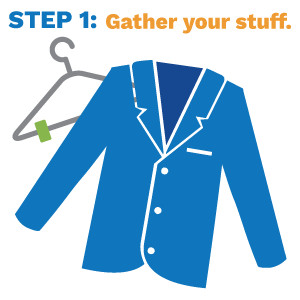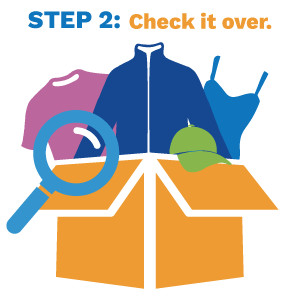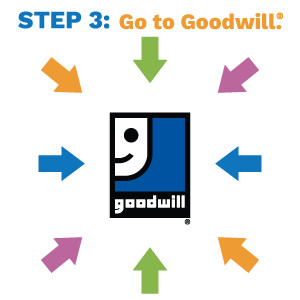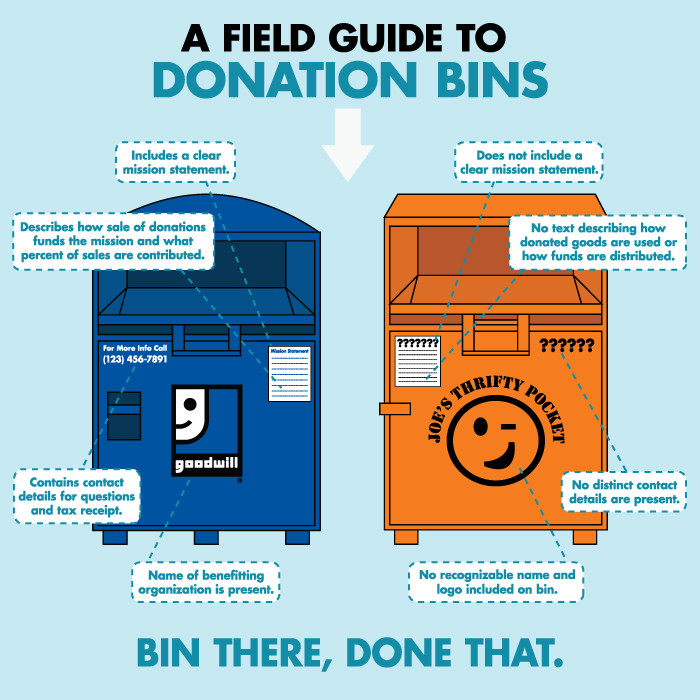Are you wondering, Where Can I Donate Clothes? Decluttering your closet can feel fantastic, and it’s even better when you know your unwanted items can make a real difference. Donating clothes is a powerful way to support your community, help those in need, and contribute to environmental sustainability. But with so many options available, knowing where to donate clothes can be confusing.
This guide will walk you through why donating clothes is a great choice and highlight Goodwill as a leading organization where you can confidently donate your clothing and other household items. We’ll cover what items are accepted, the simple donation process, and even touch upon the tax benefits of giving. Let’s explore how you can easily give your garments a second life and make a positive impact.
Why Donate Clothes? It’s More Than Just Decluttering
Donating clothes goes beyond simply freeing up space in your home. When you choose to donate your gently used clothing, you’re participating in a cycle of good that benefits individuals, your community, and the planet.
Firstly, your donations directly support job creation and skill development within your local area. Organizations like Goodwill utilize the revenue generated from selling donated items to fund crucial employment training and job placement services. This means your donated clothes help individuals facing employment barriers gain valuable skills and find meaningful work, strengthening the local economy and community fabric.
Secondly, donating clothes is an environmentally responsible choice. The fashion industry is a significant contributor to waste and pollution. By donating and extending the lifespan of clothing, you help reduce textile waste ending up in landfills. This conserves resources, minimizes pollution, and promotes a more sustainable approach to consumption. Choosing to donate is a simple yet effective way to practice environmental stewardship and contribute to a greener planet.
Finally, donating clothes provides affordable clothing options for individuals and families in need within your community. Goodwill stores, for example, offer a wide selection of gently used clothing at accessible prices, ensuring everyone has access to quality garments, regardless of their financial situation.
Where Can I Donate Clothes? Goodwill: A Trusted Choice
When considering where can I donate clothes, Goodwill stands out as a reputable and impactful organization. Goodwill is a leading nonprofit dedicated to providing employment training, job placement services, and other community-based programs. They operate a vast network of donation centers and retail stores across North America, making it easy and convenient for you to donate your unwanted items.
By donating to Goodwill, you can be confident that your contributions are directly supporting their mission. The revenue generated from selling your donated clothes and household items directly fuels their programs, empowering individuals to overcome challenges and achieve self-sufficiency through employment. Goodwill has a long history of positive impact and is a trusted name in communities worldwide.
Accepted Donation Items at Goodwill
Goodwill gratefully accepts a wide variety of donations to support their mission. Knowing what you can donate makes the process even easier. Here are the primary categories of items Goodwill typically accepts:
-
Clothing and Accessories: If you’re specifically looking to donate clothes, Goodwill is an excellent destination. They accept gently used clothing and accessories for men, women, and children of all ages. This includes everyday wear, formal attire, shoes, boots, handbags, belts, jewelry, and more. Donating clothing ensures that individuals in your community have access to affordable fashion options for work, school, and daily life.
-
Household Goods: Beyond clothing, Goodwill welcomes a range of household items that can help individuals and families create comfortable and functional homes. This includes kitchenware (dishes, cookware, utensils), small appliances (toasters, blenders, coffee makers), bedding and linens (sheets, blankets, towels), furniture (tables, chairs, lamps, sofas – check with your local Goodwill for size restrictions), and home décor items (picture frames, vases, decorative objects).
-
Electronics: In today’s digital age, access to technology is increasingly important. Goodwill accepts donations of used electronics, including computers, laptops, tablets, smartphones, televisions, DVD players, and audio equipment. Donating electronics allows others to access technology they might not otherwise be able to afford, bridging the digital divide and promoting equal opportunities.
 A person placing a bag of clothes into a Goodwill donation bin, symbolizing clothing donation options at Goodwill.
A person placing a bag of clothes into a Goodwill donation bin, symbolizing clothing donation options at Goodwill.
The Donation Process at Goodwill: Simple and Convenient
Donating to Goodwill is designed to be a straightforward and convenient process. Here are the typical steps involved:
-
Gather Your Donatable Items: Go through your closets, drawers, and home to identify gently used clothing, household goods, and electronics you no longer need. Ensure clothing is clean and in good condition (no rips, tears, or stains). For household items and electronics, ensure they are in working order and reasonably clean.
-
Find a Donation Center: Locate your nearest Goodwill donation center. You can easily find a donation center near you by using the locator tool on the Goodwill website. These centers are often conveniently located and have designated drop-off areas.
-
Drop Off Your Donations: Visit the donation center during their operating hours. Goodwill centers are usually staffed by attendants who will greet you and assist with your donation. They will provide you with a donation receipt, which is important for tax purposes if you plan to itemize deductions.
 A smiling Goodwill donation center attendant receiving a donation from a car, illustrating the friendly and helpful donation process at Goodwill donation centers.
A smiling Goodwill donation center attendant receiving a donation from a car, illustrating the friendly and helpful donation process at Goodwill donation centers.
 A person receiving a donation receipt from a Goodwill attendant after donating items, highlighting the important step of obtaining a receipt for tax purposes.
A person receiving a donation receipt from a Goodwill attendant after donating items, highlighting the important step of obtaining a receipt for tax purposes.
A Word of Caution Regarding Donation Bins
While donation bins can seem like a convenient option for donating clothes, it’s important to exercise caution. Not all donation bins are operated by reputable charitable organizations like Goodwill. Many bins are run by for-profit entities, and the items collected may not directly benefit charitable causes.
To ensure your donations are truly going to support a nonprofit mission, it’s generally recommended to donate directly at staffed donation centers like Goodwill. This way, you can be certain your contribution is benefiting the intended charitable organization and the community they serve. Be mindful of donation bin placement and signage and prioritize donating at official donation centers for greater confidence in your donation’s impact.
 A field guide graphic illustrating how to differentiate between legitimate charity donation bins and for-profit bins, emphasizing informed donation decisions.
A field guide graphic illustrating how to differentiate between legitimate charity donation bins and for-profit bins, emphasizing informed donation decisions.
Tax Benefits of Donating to Goodwill
Donating to Goodwill can also offer potential tax benefits. In many countries, including the United States, you may be able to deduct the fair market value of your donated clothing and household items if you itemize deductions on your tax return.
To claim a tax deduction, you’ll need to obtain a donation receipt from Goodwill at the time of your donation. It’s also your responsibility to determine the fair market value of your donated items. Goodwill often provides resources like donation valuation guides to help you estimate the value of common donation items. Consult with a tax advisor for personalized advice on tax deductions related to charitable donations.
By donating to Goodwill, you’re not only helping others and the environment but also potentially benefiting yourself through tax savings.
Make a Difference Today: Donate Your Clothes to Goodwill
Knowing where can I donate clothes is the first step in making a positive change. Goodwill provides a trusted, convenient, and impactful avenue for donating your unwanted clothing and household items. Your donations directly support job training and community programs, empower individuals, promote sustainability, and may even offer tax benefits.
Take action today! Declutter your home, give your garments a second life, and contribute to your community by donating to your local Goodwill. Visit the Goodwill website to find a donation center near you and start making a difference with your donations.
